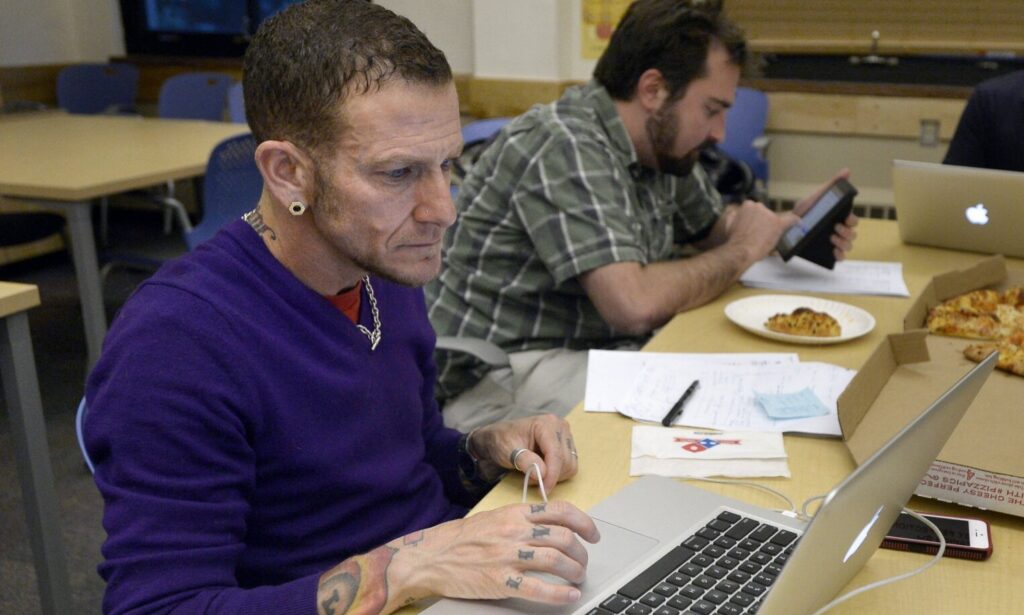5 bold, brilliant, unapologetic agender icons you need to know about

(Jim Spellman/Timothy Norris/Getty)
On Agender Pride Day (19 May), here are five activists and artists you need to know about.
Often considered to fall under the non-binary umbrella, to be agender means to not identify with any particular gender.
Agender directly translates to “without gender”, which is why it is often used interchangeably with terms such as non-gendered, genderblank and genderfree, even though not all agender people may identify with these labels.
In 2017, 27-year-old game designer Patch became the first person to be legally recognised as agender in the US.
Agender Pride Day was first observed in 2021, making it one of the most recently established LGBTQ+ Pride days. It has since been used as a day to both celebrate the agender community and educate others about what this rarely discussed identity entails.
To celebrate Agender Pride Day, we introduce you to five agender icons who prove that this community deserves to be seen.
1. Shamir Bailey

Shamir (Getty/Jerod Harris)
Singer-songwriter Shamir Bailey, usually known as Shamir, is known for his unapologetically queer music, having released his latest album Heterosexuality in 2022. Shamir, who uses he/him pronouns, first debuted in 2014 with his single “On The Regular”.
Explaining his gender identity, Shamir told The Guardian in 2015: “I have no gender, no sexuality and no f**ks to give”. In Shamir’s powerful 2021 song “Cisgender”, he sings: “I’m not cisgender, I’m not binary, trans, I don’t wanna be a girl, I don’t wanna be a man”.
He has also created content in collaboration with Them to educate others about the history of the agender community.
2. Angel Haze

Angel Haze (Timothy Norris/Getty)
Pansexual rapper Raykeea Raeen-Roes Wilson, otherwise known by their stage name Angel Haze, came out as agender in 2015 after releasing their first EP Reservation in 2012.
They told Buzzfeed that they first discussed their gender identity while getting dressed for a performance, during which Haze told stylists: “I’m not really a girl. I don’t feel comfortable in these clothes. If anything, I feel more on the guy end of the spectrum.”
Their music often explores topics of identity, as well as homophobia and racism, as they continue to be an outspoken advocate for queer people of colour.
3. sj Miller

sj Miller (Jeremy Papasso/Getty)
Renowned academic and activist sj Miller, who uses no personal pronouns, has long spoken about the impact of bullying on LGBTQ+ youth, particularly gender non-conforming people.
In 2017, Miller was featured in a CBS News documentary Gender: The Space Between, which explored the nuances of gender and how society can be more inclusive of trans, non-binary and gender non-conforming communities.
Miller has also written a number of essays on gender identity, including “Reframing schooling to liberate gender identity“, which examines how education systems can help to dismantle the gender binary and support queer students.
4. Tyler Ford

Tyler Ford (Jim Spellman/Getty)
Model, speaker and poet Tyler Ford, who is friends with celebrity icons such as Ariana Grande and Miley Cyrus, told StyleLikeU in 2015 that for them, being agender meant “not being confined by expectations or by labels.”
They added: “I’ve learned that people are socialised to think certain things about my body, because of my race or because of the way that they perceive my gender”. Ford was previously named as one of Dazed‘s 100 visionary talents shaping youth culture, and has written for MTV News about their experiences as an agender person of colour.
5. Bogi Takács

Bogi Takács (Courtney Bierman/KCUR)
Bogi Takács is a Hungarian-Jewish writer and poet, known for winning the Lambda Award in 2018 for editing Transcendent 2: The Year’s Best Transgender Speculative Fiction.
Bogi, who uses e/em/eir/emself or they pronouns and identifies as agender trans, released eir debut poetry collection, Algorithmic Shapeshifting, and eir debut short story collection, The Trans Space Octopus Congregation, in 2019, the latter of which explores gender identity through fantasy fiction.
Takács is also autistic and has featured neurodiverse characters in eir written work.

